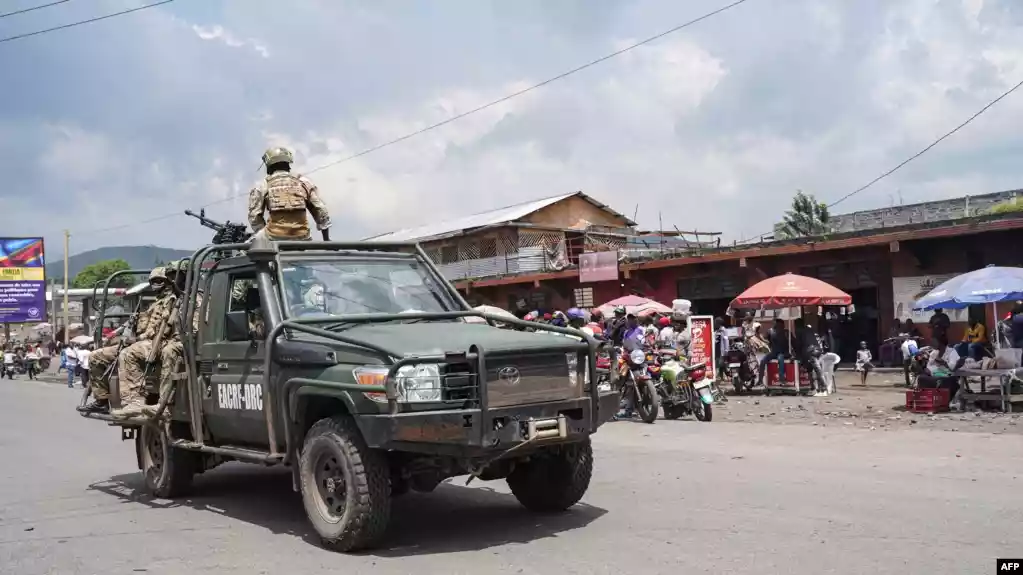×
The Standard e-Paper
Fearless, Trusted News

East African Community force soldiers drive in Goma in the eastern Democratic Republic of Congo, on Dec. 2, 2022. The military force is one of several diplomatic initiatives launched in an effort to ease tensions in the eastern DRC. [VOA]
Rwanda's army "engaged in military operations" against DR Congo's military in the country's troubled east, according to a report by a group of independent United Nations experts seen by Agence France-Presse on Thursday.